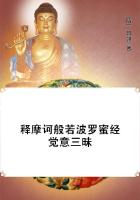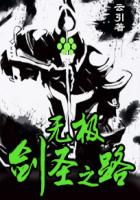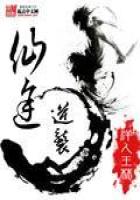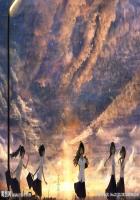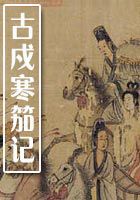By J. ARTHUR THOMSON.
Professor of Natural History in the University of Aberdeen.
In seeking to discover Darwin's relation to his predecessors it is useful to distinguish the various services which he rendered to the theory of organic evolution.
(I) As everyone knows, the general idea of the Doctrine of Descent is that the plants and animals of the present-day are the lineal descendants of ancestors on the whole somewhat simpler, that these again are descended from yet simpler forms, and so on backwards towards the literal "Protozoa"and "Protophyta" about which we unfortunately know nothing. Now no one supposes that Darwin originated this idea, which in rudiment at least is as old as Aristotle. What Darwin did was to make it current intellectual coin. He gave it a form that commended itself to the scientific and public intelligence of the day, and he won wide-spread conviction by showing with consummate skill that it was an effective formula to work with, a key which no lock refused. In a scholarly, critical, and pre-eminently fair-minded way, admitting difficulties and removing them, foreseeing objections and forestalling them, he showed that the doctrine of descent supplied a modal interpretation of how our present-day fauna and flora have come to be.
(II) In the second place, Darwin applied the evolution-idea to particular problems, such as the descent of man, and showed what a powerful organon it is, introducing order into masses of uncorrelated facts, interpreting enigmas both of structure and function, both bodily and mental, and, best of all, stimulating and guiding further investigation. But here again it cannot be claimed that Darwin was original. The problem of the descent or ascent of man, and other particular cases of evolution, had attracted not a few naturalists before Darwin's day, though no one (except Herbert Spencer in the psychological domain (1855)) had come near him in precision and thoroughness of inquiry.
(III) In the third place, Darwin contributed largely to a knowledge of the factors in the evolution-process, especially by his analysis of what occurs in the case of domestic animals and cultivated plants, and by his elaboration of the theory of Natural Selection, which Alfred Russel Wallace independently stated at the same time, and of which there had been a few previous suggestions of a more or less vague description. It was here that Darwin's originality was greatest, for he revealed to naturalists the many different forms--often very subtle--which natural selection takes, and with the insight of a disciplined scientific imagination he realised what a mighty engine of progress it has been and is.
(IV) As an epoch-marking contribution, not only to Aetiology but to Natural History in the widest sense, we rank the picture which Darwin gave to the world of the web of life, that is to say, of the inter-relations and linkages in Nature. For the Biology of the individual--if that be not a contradiction in terms--no idea is more fundamental than that of the correlation of organs, but Darwin's most characteristic contribution was not less fundamental,--it was the idea of the correlation of organisms.
This, again, was not novel; we find it in the works of naturalist like Christian Conrad Sprengel, Gilbert White, and Alexander von Humboldt, but the realisation of its full import was distinctively Darwinian.
AS REGARDS THE GENERAL IDEA OF ORGANIC EVOLUTION.
While it is true, as Prof. H.F. Osborn puts it, that "'Before and after Darwin' will always be the ante et post urbem conditam of biological history," it is also true that the general idea of organic evolution is very ancient. In his admirable sketch "From the Greeks to Darwin"("Columbia University Biological Series", Vol. I. New York and London, 1894. We must acknowledge our great indebtness to this fine piece of work.), Prof. Osborn has shown that several of the ancient philosophers looked upon Nature as a gradual development and as still in process of change. In the suggestions of Empedocles, to take the best instance, there were "four sparks of truth,--first, that the development of life was a gradual process; second, that plants were evolved before animals; third, that imperfect forms were gradually replaced (not succeeded) by perfect forms; fourth, that the natural cause of the production of perfect forms was the extinction of the imperfect." (Op. cit. page 41.) But the fundamental idea of one stage giving origin to another was absent. As the blue Aegean teemed with treasures of beauty and threw many upon its shores, so did Nature produce like a fertile artist what had to be rejected as well as what was able to survive, but the idea of one species emerging out of another was not yet conceived.
Aristotle's views of Nature (See G.J. Romanes, "Aristotle as a Naturalist", "Contemporary Review", Vol. LIX. page 275, 1891; G. Pouchet "La Biologie Aristotelique", Paris, 1885; E. Zeller, "A History of Greek Philosophy", London, 1881, and "Ueber die griechischen Vorganger Darwin's", "Abhandl.
Berlin Akad." 1878, pages 111-124.) seem to have been more definitely evolutionist than those of his predecessors, in this sense, at least, that he recognised not only an ascending scale, but a genetic series from polyp to man and an age-long movement towards perfection. "It is due to the resistance of matter to form that Nature can only rise by degrees from lower to higher types." "Nature produces those things which, being continually moved by a certain principle contained in themselves, arrive at a certain end."To discern the outcrop of evolution-doctrine in the long interval between Aristotle and Bacon seems to be very difficult, and some of the instances that have been cited strike one as forced. Epicurus and Lucretius, often called poets of evolution, both pictured animals as arising directly out of the earth, very much as Milton's lion long afterwards pawed its way out.



